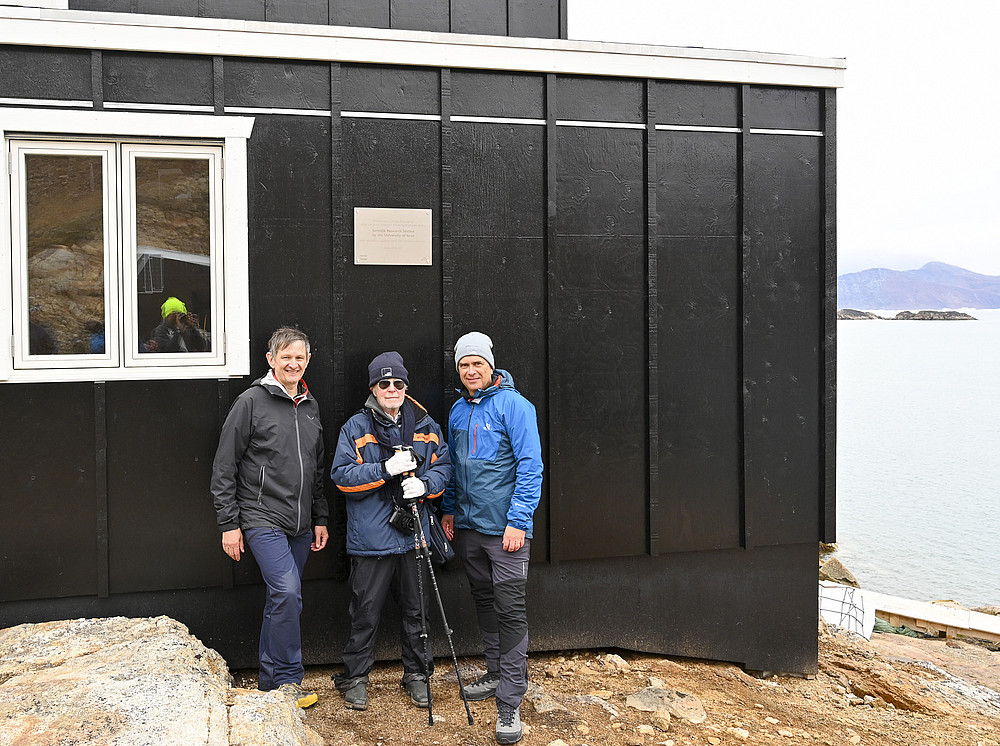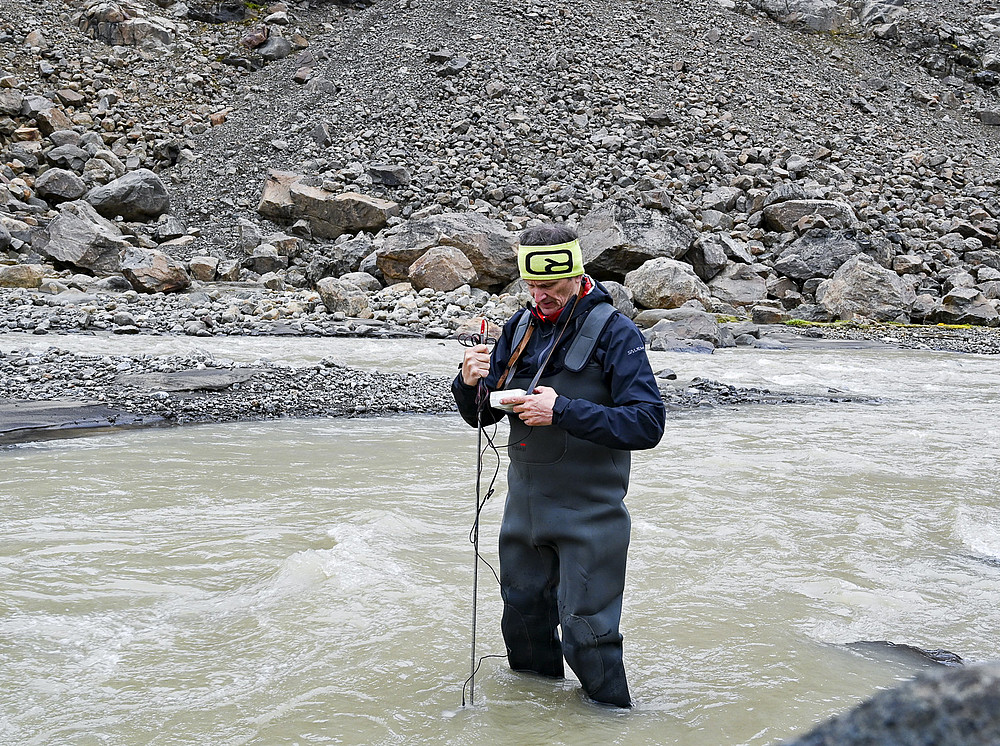The Arctic is particularly relevant for Europe. Changes in the ice cover in the north have a direct impact on the continent's climate. The areas beyond the Arctic Circle are also of great political and economic importance. In its research work, the University of Graz attaches great importance to the careful treatment of intact nature and shows the utmost respect for the unique culture of the indigenous population.
Year-round polar research: what's it all about?
Dr. Christian Palmers noticed that Austria is one of the few European countries without research infrastructure in the Arctic. He had been looking for a way to sustainably support Austria's long tradition in polar research for some time. He approached the experts of the Austrian Polar Research Institute (APRI), which is closely linked to the University of Graz. The University took the initiative and turned the ideas into a concrete project: the expansion of the Sermilik Research Station in East Greenland into a modern international research facility.
With the generous support of Dr. Palmers, a new house is being built near the station, which will quadruple the station's capacity and enable the sustainable supply of electricity, heat, and water. However, the pandemic and worldwide supply problems delayed the already costly construction work in Greenland.


The research station of the University of Graz is open to students and scientists from all disciplines. So far, research has focused on climatic changes in the polar regions and how the effects of climate change in Greenland affect its citizens. For example, the amount of meltwater from the Greenland Ice Sheet impacts fish stocks, which in turn negatively influences the important fishing industry.
However, the input of meltwater into the ocean is not only relevant for Greenland. If more fresh water enters the ocean, not only the sea level rises. It can also make it harder for the cold water masses of the North Atlantic Current to sink in the area of the Arctic. This changes the circulation of the North Atlantic. The result would be a weakening of the warm ocean currents of the Gulf Stream. The result: less heat would be transported to Europe. This would have a massive impact on the continent.
One more reason why even the smallest changes in the far north should be scientifically observed.
Timetable
- 2016: University of Graz starts cooperation with Christian Palmers for the construction of an Austrian polar research station
- 2018: First contacts between the University of Graz and the University of Copenhagen.
- 2021: Sponsorship agreement between the University of Graz and Christian Palmers
- 2022: Cooperation agreement between the University of Graz and the University of Copenhagen
- 2022: University of Graz invests in the polar station Construction work begins
- 2023: Start of provisional test operation
- 2025Completion (planned)
- 2026: Opening (planned)

Contact us
| +43 316 380 - 8297 Heinrichstraße 36 8010 Graz Österreich |
| +43 316 380 - 1018 https://presse.uni-graz.at/ |